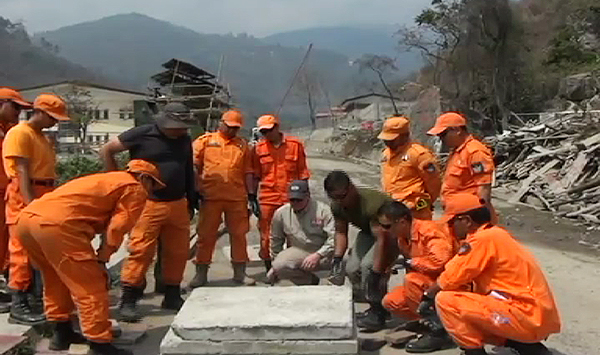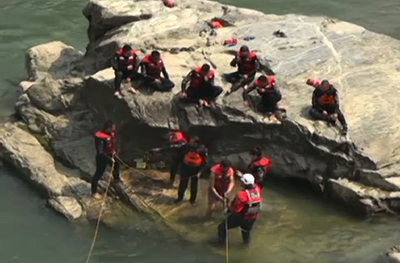 With the aim to establish international standards for Bhutanese search and rescue teams, the Department of Disaster Management (DDM) under the home ministry conducted search and rescue training in Wangdue Phodrang recently.
With the aim to establish international standards for Bhutanese search and rescue teams, the Department of Disaster Management (DDM) under the home ministry conducted search and rescue training in Wangdue Phodrang recently.
The 8-day training wrapped up yesterday and covered on urban search and rescue (USAR) related issues. It included extrication, rope and river rescue techniques.
Fifty two participants- armed force personnel, DeSuups, and rescue teams from Ministry of Health, Road Safety and Transport Authority (RSTA) and DDM were trained to cut vehicle parts to extricate trapped passengers during accidents.
Rescuers were also practically reminded on how to rescue victims from rivers and high cliffs. They were trained by 10 instructors from London Fire Brigade, who are certified trainers by International Search and Rescue Advisory Group (INSARAG).
 The Deputy Assistant Commissioner of London Fire Brigade, David O’Neill said: “We teach the people about the real basics. How to move big rocks and boulders, this is using age old techniques from the times of Egypt used for building pyramids.”
The Deputy Assistant Commissioner of London Fire Brigade, David O’Neill said: “We teach the people about the real basics. How to move big rocks and boulders, this is using age old techniques from the times of Egypt used for building pyramids.”
He continued: “We teach them how to use basic wood which is found in the area, basic levers to move around things. If building is collapsed we teach the responders how to use the things lying around in the collapse to make them safe and allow the access to carry out search and rescue.”
Participants shared the training will help them advance in search and rescue operations. “We were taught on how to respond during vehicle accidents. We were told to first analyse the situation and respond accordingly. We also learned on rescuing people if trapped under the concrete slabs,” said DeSuup Ugyen.
The disaster management department organised the training as per the INSARAG guidelines. Selected participants from this training will undergo further trainings.
“We can use this team not only for our country but also deploy them to our neighboring countries during disasters. We need to build the capacity and that is why this training was conducted,” said Tshering Wangchuk, the Programme Officer of DDM.
The INSARAG is a global network of more than 80 countries and organisations under the United Nations umbrella. INSARAG deals with urban search and rescue (USAR) related issues, aiming to establish minimum international standards for USAR teams and methodology for international coordination in earthquake response based on the INSARAG Guidelines endorsed by the United Nations General Assembly Resolution 57/150 of 2002, on “Strengthening the Effectiveness and Coordination of International Urban Search and Rescue Assistance.”
It was founded in 1991.








